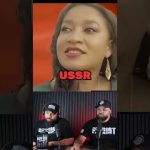In recent discussions surrounding the Second Amendment, the Department of Justice (DOJ) has faced scrutiny over its defense of the National Firearms Act (NFA), a law in place since 1934 that regulates certain firearms, including suppressors. This ongoing legal battle highlights the persistent issues facing American gun owners and the government’s approach to gun rights. George Peterson, an individual charged for possessing an unregistered suppressor, has become the focal point of this contentious debate. His case serves as a stark reminder of the federal government’s ongoing efforts to regulate firearm ownership, which many believe infringe upon constitutional rights.
Peterson’s conviction for owning an unregistered suppressor is pivotal in examining how the DOJ interprets and enforces the NFA. He pleaded guilty on a conditional basis, allowing him to challenge the law on constitutional grounds. Peterson asserts that the NFA’s requirements violate the Second Amendment. He argues that requiring individuals to register and pay a tax to use certain firearms is not in line with the freedoms guaranteed by the Constitution. The DOJ, however, contends that the NFA’s licensing process is a reasonable restriction, categorizing it as a “shall issue” scheme akin to obtaining a driver’s license.
This classification by the DOJ raises eyebrows. When comparing the right to bear arms to the process of getting a driver’s license, a troubling parallel emerges. The fundamental principle of the Second Amendment is that it grants citizens the right to keep and bear arms without unnecessary government interference. Yet, the DOJ suggests that as long as individuals follow the proper paperwork and fee structures, they are not being denied their rights. This interpretation prompts a critical question: when does a right become a privilege in disguise?
Moreover, the DOJ’s recent arguments assert that only accessories, such as suppressors, are subject to the NFA regulations, positing that this does not infringe upon the core of the Second Amendment. This tactic attempts to downplay the significance of suppressors as commonplace tools used by responsible gun owners. With millions of suppressors legally owned in the United States, the DOJ’s framing of these items as non-essential creates a narrative that undermines the rights of gun owners and supports further restrictions.
As Peterson’s case progresses, it holds implications beyond his personal struggle. If the Fifth Circuit Court upholds the NFA’s constitutionality, it sets a dangerous precedent. Such a ruling could reinforce the idea that the federal government can impose burdensome regulations on gun ownership, potentially paving the way for future limitations on all types of firearms. Alternatively, if the court sides with Peterson, it could challenge the government’s authority over the NFA and open the door for broader discussions about the Second Amendment.
The discourse surrounding the NFA and similar regulations signals a critical time for gun rights advocates. As more citizens become aware of the tactics used to sidestep constitutional protections, it becomes clear that vigilance is necessary to protect these rights. The DOJ’s stance may be characterized as pro-Second Amendment, but actions speak louder than words. Advocates must remain steadfast in their commitment to ensuring that the rights enshrined in the Constitution are respected without arbitrary limitations imposed by the government. The outcome of Peterson’s case may ultimately determine the future of firearm regulations and reaffirm the principle that all Americans deserve the right to bear arms without undue restrictions.




